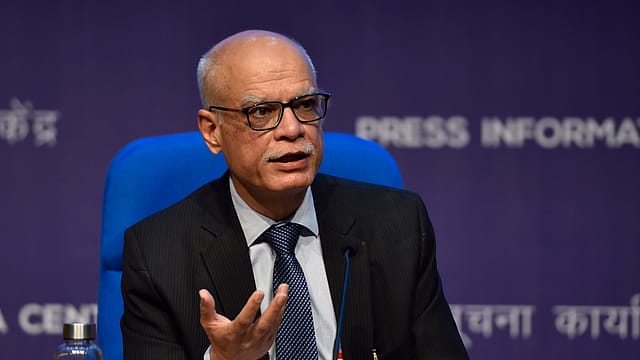Opted for infra push to economy against consolidation advice: Revenue Secy Tarun Bajaj
ADVERTISEMENT

The union ministry of finance went ahead with massive allocation to capital expenditure in the budget to boost the economy, ignoring suggestions for curtailing expenditure and fiscal deficit in the run up to the budget. Going into the budget making for 2022-23, the quality of expenditure was one of the major concerns, revenue secretary Tarun Bajaj now says.
Addressing a post budget interaction with industry body Assocham today, Bajaj said, “One of the suggestions that came from the commentators was that curtailing our expenditure, fiscal deficit, and not increasing the capital expenditure as much as we have, was one of the option to show a consolidation.”
“But in our deliberations inside, we realised that it was very important to give a push to the economy and the GDP. It was only possible with more investments,” Bajaj added.
As finance minister Nirmala Sitharaman read out the provisions, it became amply clear that the main pivot of Budget 2022-23 was infra route to economic revival. Sitharaman announced a 35.4% hike in the allocation for capital expenditure to ₹7.5 lakh crore for 2022-23.
Sharing more on the thought process behind the budget making, Bajaj said that ever since the fight against the pandemic began, he expressed to the expenditure secretary T V Somanathan that capital expenditure is the one area where the government of India is missing out.
“Our capital expenditure as a percentage of the GDP was languishing and we have been focussed more on our fiscal deficit. We should now be focused on the quality of the expenditure. I am happy that with help from everybody we have been able to more than double the capital expenditure in the last three years,” Bajaj added. The actual amount spent in FY19 under capital expenditure stands at ₹3,07,714 crore.
Bajaj also said that the capital push provided in the budget will give a fillip to the economy and job creation.
“Capital expenditure is an important initiative to push the GDP growth. Once GDP growth is pushed through this mechanism, a lot of things start falling in place. Jobs will fall in place, economic revival will fall in place, businesses and taxes will improve and incomes will improve. Once it starts happening we also expect the private sector to come forward and replace the public sector capex,” Bajaj said.